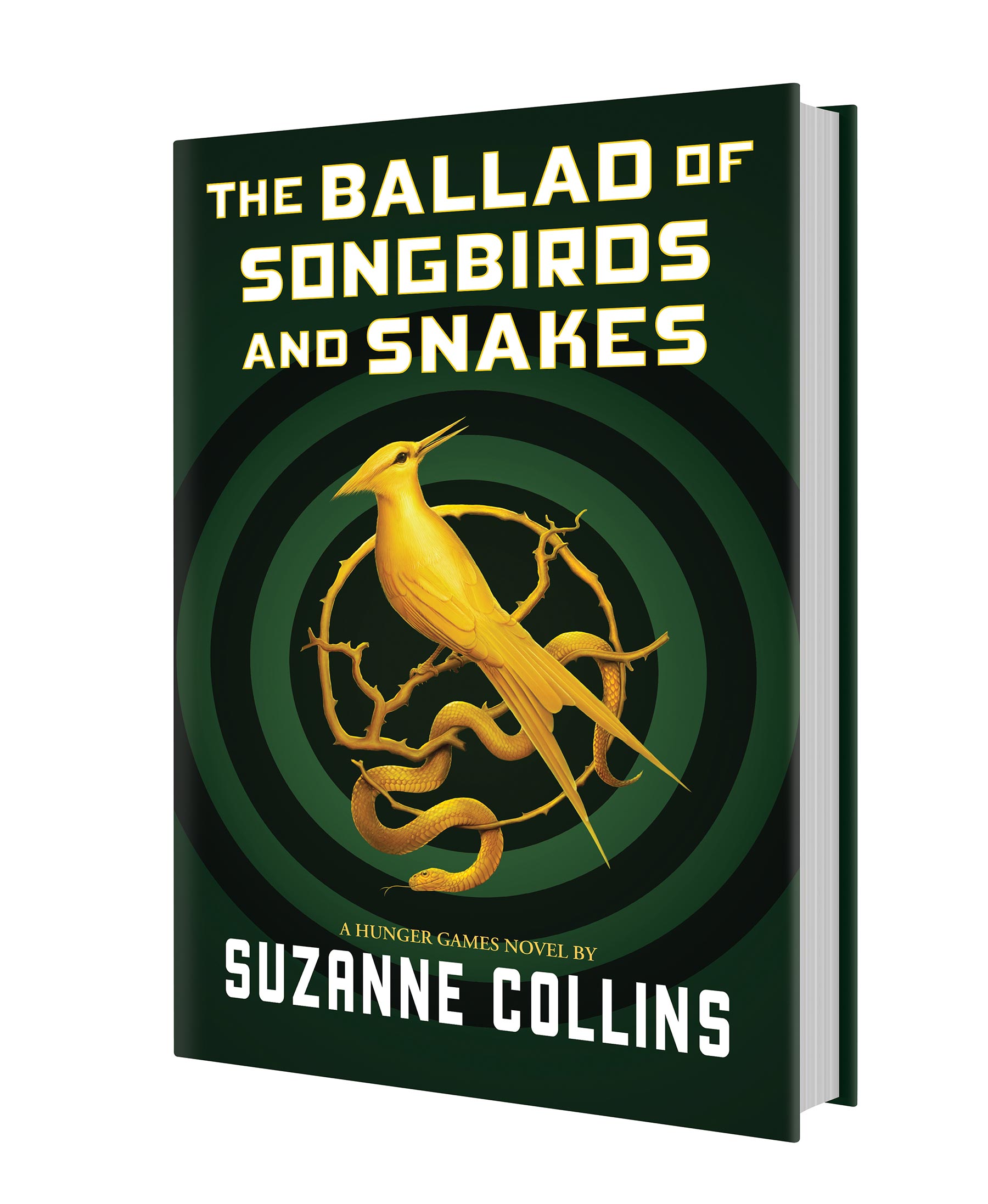
Readers of Suzanne Collins’ hit young-adult trilogy, The Hunger Games, will remember Coriolanus Snow as the tyrannical president of Panem and tormentor of rebel protagonist Katniss Everdeen. Collins’ highly anticipated new prequel, The Ballad of Songbirds and Snakes, is here to flesh out the one-note villain.
Sixty-four years before Katniss enters the arena, Coriolanus—Coryo to a select few—is 18 years old, ambitious to the bone and secretly broke. He’s a student at the Capitol Academy, the school where the privileged children of the city spend their days preparing for college and prestigious careers in the only part of the country with resources and opportunity. But the First Rebellion, the civil war that was fought between the Capitol and the districts 10 years prior, has left the once-affluent Snows nearly destitute and fighting to keep up appearances. His father died a hero in the war and his mother before, so it’s just Coriolanus, cousin Tigris and their grandmother living in the luxurious family penthouse, struggling to make do with tattered clothing and little to eat.
When news of the prequel’s premise broke in January, fans of the original series spoke out against the need for a backstory about its major villain, comparing it to films like Joker that seem to provide justification for a character’s future cruelty. And the first chapters of Collins’ fast-paced narrative do stoke a certain amount of sympathy; Coryo is a boy under pressure, recovering from the traumas of war and losing his parents while striving to make a name for himself in a brutally classist society. But Collins wastes no time in planting disturbing clues about his true nature.
The Hunger Games launched with the scene at the Reaping, the annual ceremony where a boy and a girl from each of the 12 districts is selected to compete in a televised battle to the death—the Capitol’s punishment and reminder to the districts of their loss in the war. The Ballad of Songbirds and Snakes shows the same scene from the other side; a group of 24 Academy students, Coriolanus among them, watches with glee as the tributes are named. These students will be mentors—a new addition to the 10th annual games, designed to reinvigorate waning interest in the broadcast—and the winning tribute’s mentor will be awarded a major financial prize. It’s a move that sets in motion the games’ transformation from an unsophisticated gladiator-style battle royale to the technologically advanced spectacle of Katniss’ era—just one of the examples that Collins unveils about Coriolanus’s role in developing the morbid event.
Coriolanus, whose vanity, arrogance and self-absorption are underscored by Collins, is desperate for the prize. And he’s all the more anxious when he realizes he’s been assigned the female tribute from deeply impoverished District 12, an assignment he views as below what befits his family name. But Lucy Gray Baird, a charming singer with an affinity for snakes, proves to be a contender—and a defining test of Coriolanus’s character. Through their story, Collins draws a stark line between love and possession.
The Ballad of Songbirds and Snakes builds on the original series’ overt critique of violence and those who perpetuate it, again in terms that speak to a more mature audience than their young-adult marketing might suggest. But where Katniss was a heroine whose flaws were laid bare as she came into her own, Coriolanus sometimes feels reverse-engineered to fit his older mold, and the novel doesn’t fully explain the roots of his at-any-costs ambition. Collins might’ve been better served in exploring the Dark Days of Panem by bringing in the viewpoints of some of the supporting players like Sejanus Plinth, a District 2 transplant in the Capitol who views Coriolanus as a brother, or Lucy Gray herself.
For true fans of The Hunger Games, Collins shines most as she weaves in tantalizing details that lend depth to the gruesome world she created in the original series and Coriolanus’s place in its history. And while the character does not appear in the timeline, Collins subtly calls back to Panem’s true hero—one who rose out of a crisis even starker than that of this protagonist. Katniss found her way. Coriolanus, well, we already know how that story ends.
More Must-Reads from TIME
- Cybersecurity Experts Are Sounding the Alarm on DOGE
- Meet the 2025 Women of the Year
- The Harsh Truth About Disability Inclusion
- Why Do More Young Adults Have Cancer?
- Colman Domingo Leads With Radical Love
- How to Get Better at Doing Things Alone
- Michelle Zauner Stares Down the Darkness
Write to Megan McCluskey at megan.mccluskey@time.com